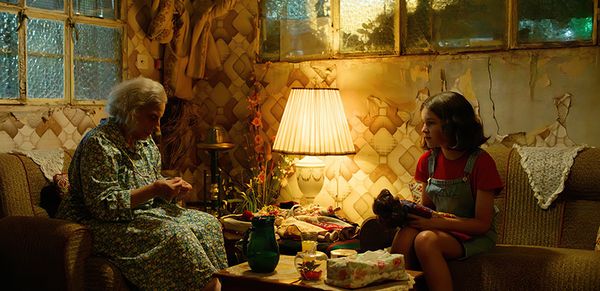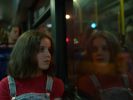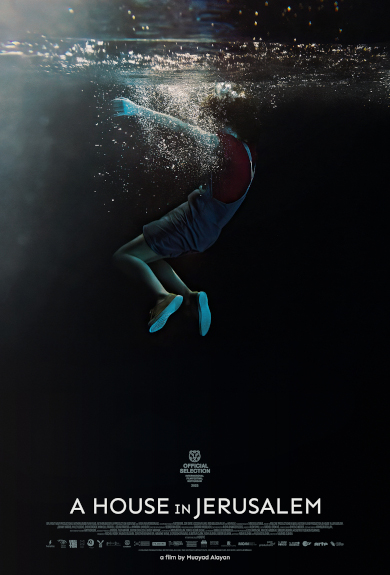Eye For Film >> Movies >> A House In Jerusalem (2023) Film Review
A House In Jerusalem
Reviewed by: Jennie Kermode

The classic devices of children’s fiction are given fresh purpose in Muayad Alayan’s atmospheric ghost story, whose screening at the 2024 Glasgow Film Festival has an additional resonance due to concurrent events which could not have been foreseen when it was made, despite the fractiousness of the situation over the past few decades. It follows 12-year-old Rebecca (Miley Locke), who, following the death of her mother, relocates to Jerusalem with her grieving father to begin a new life in a house which once belonged to her grandfather. The house has an older past which, at her tender age, she has not reckoned with, and her discovery of this goes hand in hand with her developing awareness of the political climate surrounding her.
There are coming-of-age themes here as well. Between her bereavement, the gradual revelation of her father’s vulnerability and her observations of military and police actions, Rebecca needs to grow up fast. She receives a friendly reception at her new school but her inability to speak Hebrew keeps her, at least temporarily, at a distance. As she explores the house and garden, her father tells her to keep away from the well, and one wonders if this is the first time he has engaged in hands-on parenting. Of course it is a magnet to her then, and sneaking out by night to explore it, she finds a curiously dressed doll in the water. Her father later catches her with the doll and throws it out. Then the doll’s owner finds Rebecca.

This is Rasha (Sheherazade Farrell), sneaking around the house, afraid of being seen, though it will soon emerge that nobody can see her except for Rebecca. Familiar arguments ensue from this as Rebecca’s changed behaviour starts to cause worry. Her father wants her to see a psychologist as she did after her mother’s death, something she hates almost as much as not being believed. Naturally, this leads her to seek comfort with her ghostly companion, a girl who insists that she's not dead, just hiding in the house where she grew up, waiting for her family to return. That family seems to have left in 1948 – and yet as Rebecca probes deeper into the mystery, she discovers something more complex than it first appears to be.
Strong willed heroines are a staple of this sort of fiction and so it’s natural that Rebecca should choose to wander around on her own, pursuing clues in the town and beyond – yet the reactions of adults to this, and the danger she slowly learns to see, hammer home the skewed reality of life in Israel. Even searching on the internet has consequences she could not have been equipped to understand. Most confusing for her is Rasha’s fear of the police, whom she has never had reason to see in that way; and later, differently unsettling, the way that Palestinian people quietly comply with the clearly discriminatory rules imposed on them.
Despite the specificity of its context, this is a film that will help young white viewers to obtain a deeper understanding of racism in general, and to identify some of the ways it manifests in society. It does this without any big speeches, and without providing any easy answers. At the same time, it provides its heroine with a rich cultural experience and a growing appreciation of the various kinds of art she encounters, which act as a bridge between worlds. Memory and tradition bind the present to the past both socially and individually, helping her to better understand the ongoing place of her mother in her life. It may seem simple to adults because it’s aimed at younger viewers, but it’s respectfully and evocatively told, and a good place to start exploring some of the difficult issues in the world today.
Reviewed on: 07 Mar 2024

















